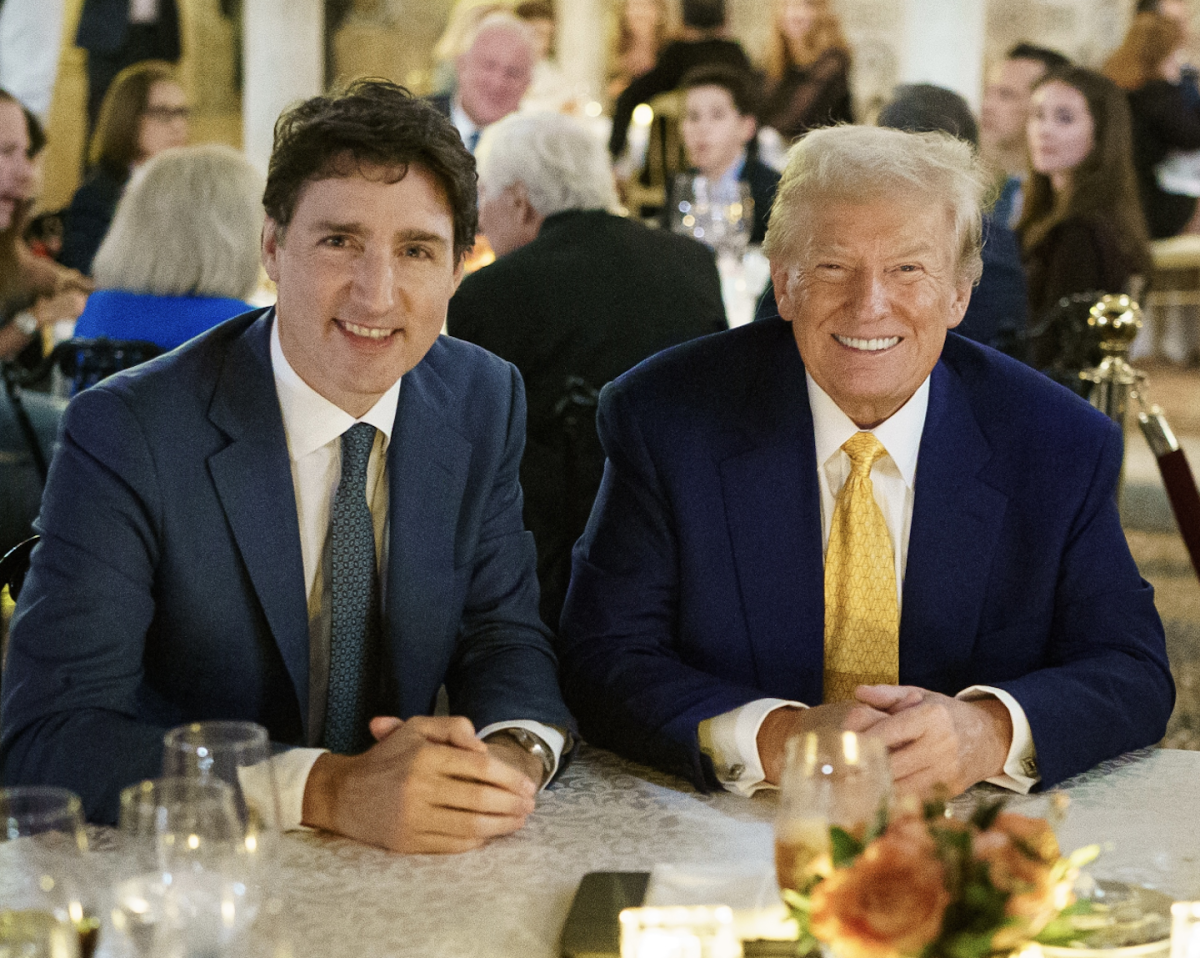Canada's Response To Trump's 51st State Suggestion

Table of Contents
The Initial Reaction: Public Opinion and Government Statements
The initial reaction to Trump's 51st-state suggestion was a mix of disbelief, humor, and outright outrage. Canadian public opinion, as reflected in numerous polls and social media discussions, overwhelmingly rejected the idea. The sentiment was largely one of defending Canadian sovereignty and national identity. The Canadian government's response was swift and unequivocal.
-
Prime Minister Justin Trudeau's response: While avoiding overly confrontational language, Trudeau's statements emphasized Canada's strong sense of national identity and its commitment to its independent political system. He reiterated Canada's pride in its unique culture and its commitment to its own democratic institutions. Specific quotes from official government statements are readily available online via the Prime Minister's office website and reputable news sources. (Link to relevant government website/news article here).
-
Public Sentiment: Online polls and surveys showed an overwhelming rejection of annexation by the Canadian public. Many Canadians found the suggestion humorous, expressing their views through satire and memes. Others expressed concerns about the potential impact on Canadian culture, values, and the environment. (Link to relevant polling data/news articles here).
-
Media Coverage: Canadian and international media extensively covered the event, analyzing the implications and contributing to the overall public discourse. The suggestion provided fodder for numerous opinion pieces, debates, and discussions, reflecting the serious consideration many gave to the implications of such a possibility.
Economic Implications and Trade Relations
The hypothetical annexation of Canada would have profound economic consequences, particularly considering the deeply intertwined trade relationship between the two countries. The USMCA (United States-Mexico-Canada Agreement), formerly NAFTA, forms the bedrock of this relationship.
-
Trade Disruptions: Annexation would likely lead to significant disruptions to existing trade flows and agreements. The intricate web of cross-border trade, particularly in sectors like agriculture and energy, would need to be renegotiated. Potential tariffs and trade barriers could significantly impact the Canadian economy.
-
Impact on Canadian Industries: Canadian industries, particularly those heavily reliant on the US market, would face uncertainty. The agricultural sector, energy sector, and automotive industry would be particularly vulnerable to the economic shocks that such a drastic change would introduce.
-
Expert Opinions: Economists and trade experts have voiced serious concerns regarding the potential negative economic fallout of annexation, highlighting the risks to Canadian economic stability and prosperity. (Links to relevant expert opinions/analyses here).
Political and Diplomatic Responses: Maintaining Sovereignty
Canada's response focused heavily on maintaining its sovereignty and defending its national interests. The government engaged in diplomatic efforts to ensure Canada's position was clearly understood by the international community.
-
Diplomatic Efforts: Canada emphasized its commitment to its independent foreign policy and its strong alliances within international organizations. (Examples of specific diplomatic actions here).
-
International Support: While other nations were largely hesitant to directly engage with Trump's suggestion, there was an understanding and supportive response from Canada's allies, acknowledging the importance of Canadian sovereignty and the stability of the North American order.
-
Strengthening National Institutions: The Canadian government used the occasion to reaffirm the role and importance of its national institutions in safeguarding its independence and sovereignty. This included emphasis on democratic processes, the judiciary, and the Canadian military.
The Long-Term Impact on Canada-US Relations
Trump's 51st-state suggestion, despite its seeming absurdity, had a lasting impact on Canada-US relations. It highlighted pre-existing anxieties and complicated the ongoing dialogue between the two countries.
-
Shifts in Canadian Foreign Policy: While not necessarily a major shift, the incident highlighted the need for Canada to maintain a strong and independent foreign policy, capable of navigating complex geopolitical challenges.
-
Public Perception: The suggestion likely contributed to some Canadians’ perceptions of the US, exacerbating pre-existing concerns about US political influence and unilateral actions.
-
Future of Bilateral Relations: The long-term impact is still unfolding, but the incident underscores the necessity of continued dialogue and cooperation to manage the complexities of the bilateral relationship and avoid future misunderstandings.
Conclusion
Canada's response to the provocative 51st-state suggestion was characterized by a measured yet firm defence of its sovereignty and national interests. The event highlighted the deep economic and political ties between Canada and the US, while also emphasizing the strength of Canada's commitment to its independent identity. The incident served as a reminder of the importance of clear communication, mutual respect, and ongoing dialogue in maintaining a healthy and productive Canada-US relationship. Learn more about Canada's response to the 51st-state proposal and further explore the complexities of Canada-US relations by researching Canada's foreign policy and the history of the bilateral relationship. (Links to relevant resources here).

Featured Posts
-
 Alteawn Khtt Eml Ltezyz Slslt Altmyz Amam Alshbab
Apr 30, 2025
Alteawn Khtt Eml Ltezyz Slslt Altmyz Amam Alshbab
Apr 30, 2025 -
 Stream Untucked Ru Pauls Drag Race Season 17 Episode 6 Free Online
Apr 30, 2025
Stream Untucked Ru Pauls Drag Race Season 17 Episode 6 Free Online
Apr 30, 2025 -
 Manchester Eurovision What You Need To Know
Apr 30, 2025
Manchester Eurovision What You Need To Know
Apr 30, 2025 -
 Akhbar Meashat Abryl 2025 Mwed Alsrf Alrsmy L 13 Mlywn Mwatn
Apr 30, 2025
Akhbar Meashat Abryl 2025 Mwed Alsrf Alrsmy L 13 Mlywn Mwatn
Apr 30, 2025 -
 The 51st State Controversy Trumps Words And Their Impact On Canada
Apr 30, 2025
The 51st State Controversy Trumps Words And Their Impact On Canada
Apr 30, 2025
